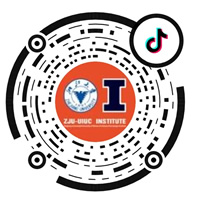On the afternoon of June 28, 2024, an innovation workshop hosted by the Smart Urban Future Laboratory, the International Campus, Zhejiang University, invited Prof. Xie Chi, a Tenured Professor and Ph.D. supervisor from the College of Transportation Engineering at Tongji University, Associate Prof. Jan-Dirk Schmöcker from the Department of Earth and Planetary Sciences at the School of Science, Kyoto University, and Associate Prof. Song Liying, a Ph.D. supervisor from the School of Traffic and Transportation at Beijing Jiaotong University. The event was hosted by Academician Lee Der-Horng, Dean of ZJUI.
▲ Lecture Scene
Electrification poses a promising approach to reducing carbon emissions and promoting carbon neutrality in the transportation sector. Over the past decade, rapid advancements in battery technology and the deployment of global power infrastructure have significantly propelled the electrification of transportation. In China, thousands of electric buses are already operating in urban areas. Focusing on the theme “Optimal Charging Schedule of a Large-Scale Electric Bus Fleet with Conventional and Renewable Electricity Sources,” Prof. Xie Chi discusses scheduling the daily charging activities of an electric bus fleet operated across multiple bus lines and charging depots and terminals, with the aim of finding an optimal set of charging location and time decisions given the available charging windows, with the electricity supplied by both the conventional power grid and emerging photovoltaic-storage-charging stations. He also highlighted the development of a mixed-integer linear programming model that addresses the charging scheduling problem across multiple bus routes and charging stations. Prof. Xie’s team validated the effectiveness of their model and algorithm through Shanghai’s electric bus fleet, demonstrating its efficiency over existing advanced commercial models.
▲ Professor Xie Chi delivering a lecture
COVID-19, natural disasters as well as large events disrupt daily life in cities, causing significant impacts on traffic efficiency by interrupting transportation systems. Thus, assessing the resilience of transportation systems is crucial. In his lecture, Professor Jan-Dirk Schmöcker explored the topic “Public transport Usage and Activity Participation: Fusing Data Sources to Understand Behavioural Adaptations and Resilience to Disruptions.” He pointed out that impacts such as traffic congestion can be measured but the resulting overall resilience to such disruptions is more difficult to quantify as it requires an understanding of demand and supply impacts.. He discussed data that quantify activity participation and public transport usage as two important aspects of urban and regional resilience. Additionally, he noted that in grid-like transportation networks (such as Kyoto), the loss of resilience is less dependent on network connectivity degradation compared to ring-like networks (such as Munich).
▲ Professor Jan-Dirk Schmöcker delivering a lecture
Prof. Song Liying discussed “Research on Identifying the Impact Range of Urban Rail Emergencies and Optimizing Emergency Bus Transporation.” She noted that urban rail transit has become a vital component of public transportation in major cities due to its large capacity, high speed, and punctuality. However, emergencies often lead to rapid train delays and widespread impact, causing a significant number of passengers to be stranded at stations, thereby increasing the safety risks in public transportation. Professor Song utilized deep learning technology to identify the spatiotemporal impact range of emergencies and resolved the emergency bus bridging problem through mathematical optimization models. This provides decision-making support for emergency management, reducing travel delays and lowering safety risks.
▲ Professor Song Liying delivering a lecture
During the Q&A session, students actively participated by asking numerous questions and engaging in interactive discussions. Prof. Xie Chi addressed many of the students’ queries and shared his insights on battery swapping stations. Prof. Jan-Dirk Schmöcker discussed the application of high-resolution mobile phone statistics and explored the feasibility of utilizing social media data and web scraping data, as well as the need for data fusion and machine learning technologies.
▲ Q&A Session
This workshop provided students with a valuable opportunity to broaden their horizons and gain a deeper understanding of urban public transportation. The professors’ impressive presentations, backed by their profound professional knowledge, left a lasting impression on the audience. They not only shared cutting-edge research findings but also proposed innovative solutions to the challenges facing urban public transportation, sparking extensive thought and discussion among the students. Through this lecture, the students expressed that they gained a more comprehensive understanding of public transportation systems and further clarified their own goals.







